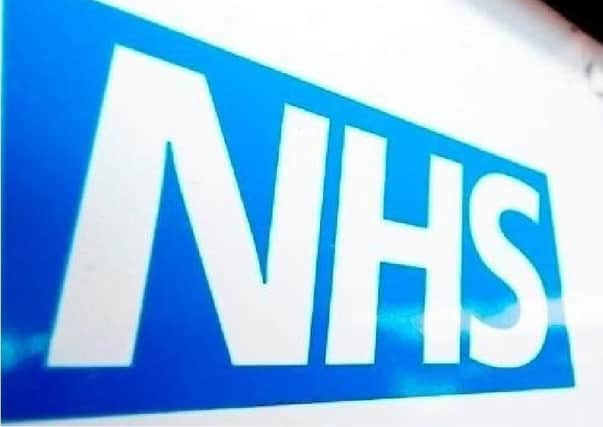Patient watchdog welcomes new countywide clinical commissioning body as new website launched with breakdown of numbers contacting NHS with Covid-19 symptoms


Healthwatch Lincolnshire (HWLincs) has given its blessing to the formation of the newly named NHS Lincolnshire Clinical Commissioning Group, moving from four organisations into one in line with national direction.
Since 2013 the commissioning groups were split into West, South, South West and East Lincolnshire but agreed to merge as of today (Wednesday, April 1).
Advertisement
Hide AdAdvertisement
Hide AdSarah Fletcher CEO of HWLincs said: “This has been a long awaited move and we welcome the newly named NHS Lincolnshire Clinical Commissioning Group. Whilst we appreciate that all efforts are focussed on COVID-19 at the moment, we hope this approach in the longer term will bring greater equality to Lincolnshire patients receiving services and a more joined up streamlined approach”.
She also added that patients should still contact their GP if they have other illnesses and medical concerns that really should be seen to and not suffer in silence for fear of disrupting surgeries dealing with the Covid-19 outbreak.
The new Lincolnshire CCG will be responsible for a budget of over £1.2bn, which it will use to commission – or buy - health services on behalf of the population of the county.
John Turner, Chief Executive, said “The current entire focus of the NHS in the county is on responding to the COVID-19 pandemic. We are all working together as one NHS team alongside our partners, to deliver the best possible NHS support to people and patients at this exceptionally difficult time for us all.
Advertisement
Hide AdAdvertisement
Hide Ad“The NHS workforce in the county is showing tremendous professionalism and dedication, for which we are sincerely grateful, and the new Lincolnshire CCG will aim to promote and extend this excellent collaborative working for the benefit of the people of Lincolnshire.”
Sean Lyons, chairman, said “It is evident that over the past year there has been wide support to merge the previous four CCGs into one NHS Lincolnshire CCG, which will simplify arrangements between commissioners, providers and system partners.
“We have established the new CCG in a low-key way to enable us to focus on working with our NHS colleagues and other partners in responding to the COVID-19 pandemic. In doing so, it is vitally important that we all follow the Government’s current advice, as this is the best way we support our NHS, and save lives.”
The move will be one of 18 new CCG groups created as mergers take place across the country.
Advertisement
Hide AdAdvertisement
Hide AdAs of April 2019, there were a total of 191 commissioning groups in England. responsible for around £79.9 billion of the NHS budget last year.
However, that number will fall to 134 as 74 CCGs merge to create new bodies as part of shake-up measures in the NHS Long Term Plan.
Commissioning groups are responsible for planning and commissioning care in their local area.
○ In another development the NHS has launched a new online ‘dashboard’ giving a regional picture of the number of people contacting NHS 111 and 999 over the phone and via the website with symptoms of Covid-19.
Advertisement
Hide AdAdvertisement
Hide AdThe dashboard shows the total number of triage assessments completed that have identified a potential coronavirus case.
The dashboard will be published daily by NHS Digital, to inform the public and support the health and social care system in planning. It is released alongside a file of open data so others can also analyse the information.
The data shows the total number of NHS Pathways triages through NHS 111 and 999 over the phone which have identified a potential COVID-19 case since March 18; and the total number of online assessments in 111 online which have identified a potential COVID-19 cases since March 18.
There are maps at CCG level showing the number of triages/online assessments for each CCG, along with relevant population data showing the rate per 100,000 of the population.
Advertisement
Hide AdAdvertisement
Hide AdFor Lincolnshire there had been 688 triages via calling 111 or 999 up to April 1 out of a county population of approximately 237,642. That equates to 289.5 triages per 100,000 population. By far the majority of these had been by people aged between 19 and 69.
There had been 4,191 completed online assessments via the NHS 111 website out of the Lincolnshire population of 237,642, equating to an average of 1,763.6 completed assessments per 100,000 head of population. More than half of the assessments had been for women.
The analysis includes breakdowns by sex and by age group.
This data is based on potential COVID-19 symptoms reported by members of the public to NHS Pathways through NHS 111 or 999 and 111 online and is not based on outcomes of tests for coronavirus.
This is not a count of people. In 111 online, any user that starts and launches the COVID-19 assessment services is indicating they may have symptoms of coronavirus. They may have accessed the service multiple times with different symptoms. For NHS Pathways, it is a count of triages through NHS 111 or 999.
Advertisement
Hide AdAdvertisement
Hide AdUsers of 111 online can change answers and reach multiple dispositions so the data indicates those users that have started an assesment and completed a final disposition.
Users enter their current location which may differ from their home postcode.